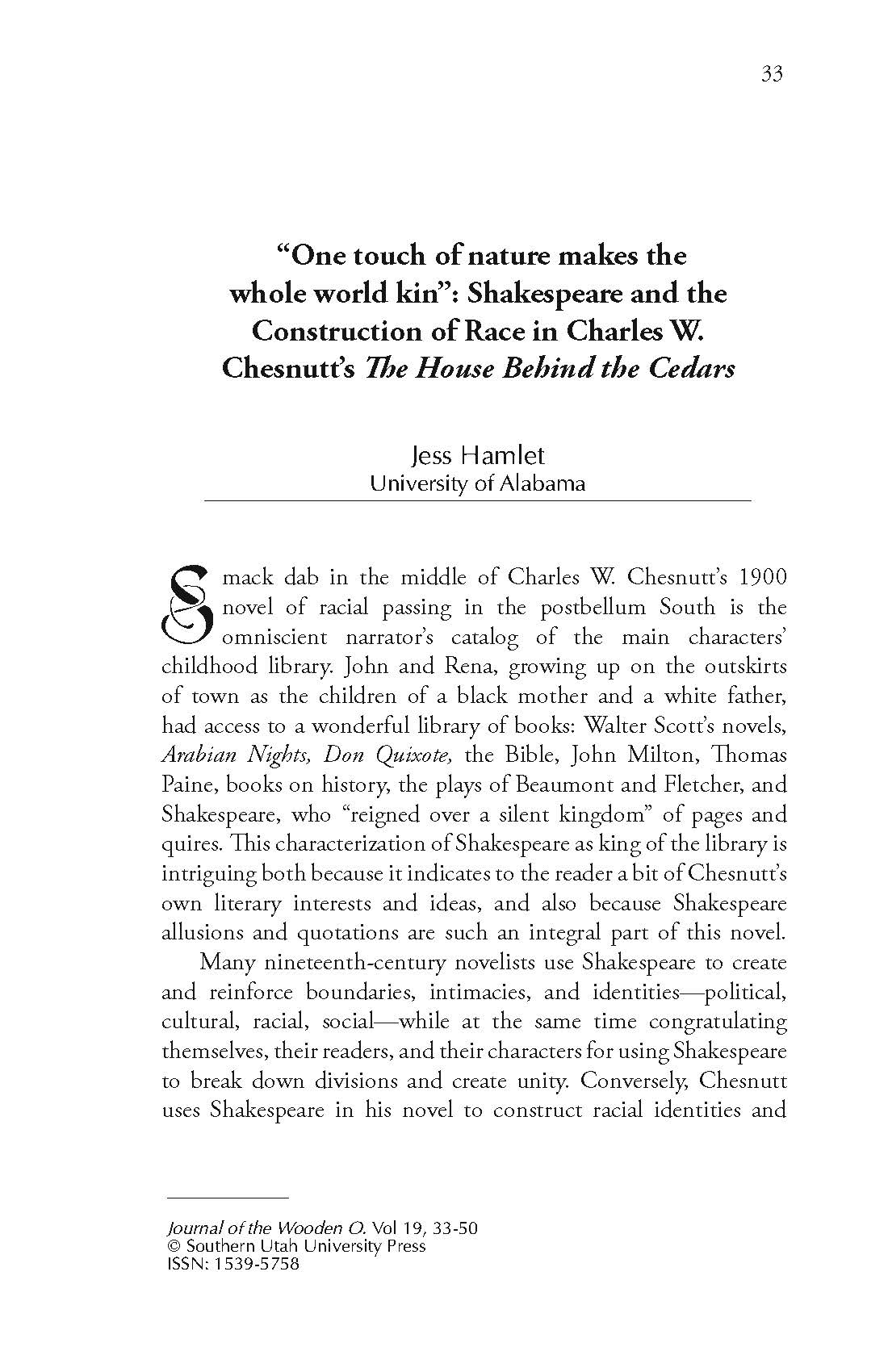“One touch of nature makes the whole world kin”: Shakespeare and the Construction of Race in Charles W. Chesnutt’s The House Behind the Cedars
Main Article Content
Abstract
Smack dab in the middle of Charles W. Chesnutt’s 1900 novel of racial passing in the postbellum South is the omniscient narrator’s catalog of the main characters’ childhood library. John and Rena, growing up on the outskirts of town as the children of a black mother and a white father, had access to a wonderful library of books: Walter Scott’s novels, Arabian Nights, Don Quixote, the Bible, John Milton, Thomas Paine, books on history, the plays of Beaumont and Fletcher, and Shakespeare, who “reigned over a silent kingdom” of pages and quires. This characterization of Shakespeare as king of the library is intriguing both because it indicates to the reader a bit of Chesnutt’s own literary interests and ideas, and also because Shakespeare allusions and quotations are such an integral part of this novel.
